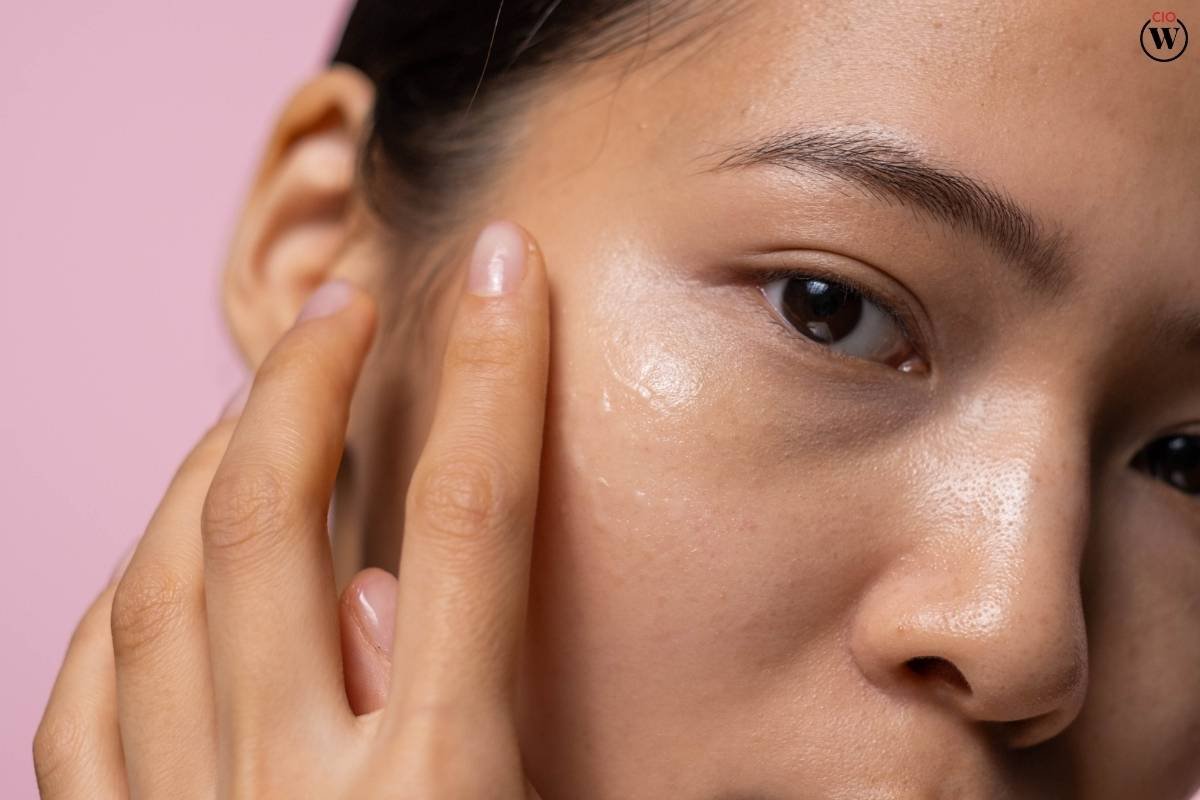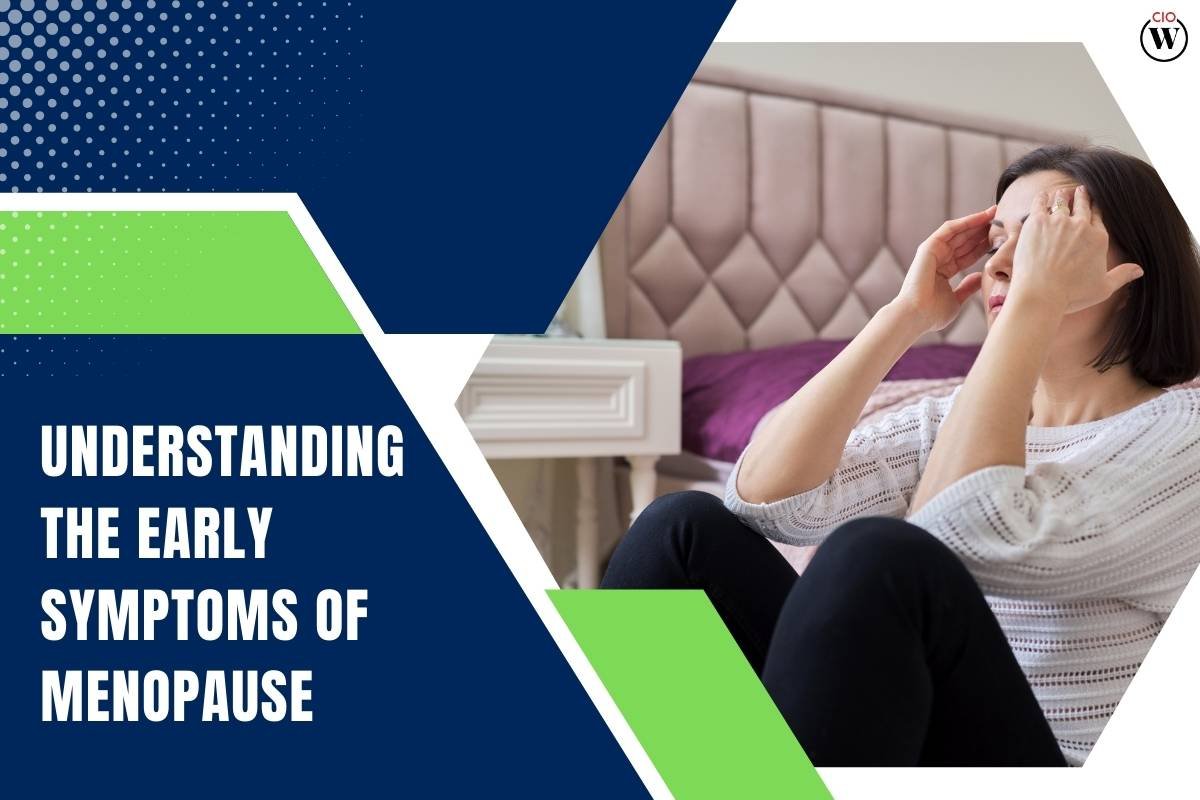Entering menopause is a significant transition in a woman’s life, marking the end of her reproductive years. This natural biological process typically occurs between the ages of 45 and 55, with the average age of onset around 51. Menopause is characterized by the cessation of menstruation, but its effects extend far beyond the absence of periods. Understanding the early symptoms of menopause is crucial for women to navigate this phase with awareness and preparedness. In this article, we will explore these symptoms in detail, shedding light on the physical, emotional, and psychological changes that women may experience.
Here are ten symptoms of menopause:
1. Irregular Menstrual Cycles
One of the hallmark symptoms of menopause is irregular menstrual cycles. As women approach menopause, their menstrual periods may become unpredictable, with variations in frequency, duration, and flow. These irregularities often signal hormonal fluctuations as the ovaries produce less estrogen and progesterone, leading to changes in the menstrual cycle. The unpredictability of periods is a common early symptom of menopause, affecting many women as they transition into this new phase of life.
2. Hot Flashes and Night Sweats

Hot flashes and night sweats are among the most recognizable symptoms of menopause. Hot flashes, characterized by sudden feelings of intense heat spreading across the body, can occur at any time of the day or night. Night sweats, which are hot flashes that occur during sleep, can disrupt sleep patterns and lead to feelings of discomfort and fatigue. These vasomotor symptoms are thought to result from hormonal changes that affect the body’s temperature regulation, and they can vary in frequency and intensity from woman to woman.
3. Vaginal Dryness and Discomfort
Decreased estrogen levels during menopause can lead to vaginal dryness and discomfort. The vaginal tissues may become thinner, less elastic, and more prone to irritation, resulting in symptoms such as itching, burning, and pain during intercourse. Vaginal dryness can also contribute to urinary symptoms, such as increased frequency or urgency, further impacting a woman’s quality of life. Addressing vaginal dryness is an essential aspect of managing the symptoms of menopause and maintaining sexual health.
4. Mood Changes and Emotional Symptoms
Menopause is often accompanied by mood changes and emotional symptoms that can range from mild to severe. Fluctuations in hormone levels can affect neurotransmitters in the brain, leading to mood swings, irritability, anxiety, and depression. Many women also report feeling more emotional or sensitive during menopause, experiencing heightened reactions to stressors and life events. Recognizing these emotional symptoms and seeking support from healthcare providers or mental health professionals can help women cope with the psychological aspects of menopause.
5. Sleep Disturbances

Sleep disturbances are common during menopause, with many women experiencing difficulties falling asleep or staying asleep throughout the night. Factors such as hot flashes, night sweats, and hormonal fluctuations can disrupt sleep patterns and contribute to insomnia or poor sleep quality. Sleep disturbances can have a significant impact on a woman’s overall well-being, leading to daytime fatigue, irritability, and difficulty concentrating. Practicing good sleep hygiene and exploring strategies to manage menopausal symptoms can improve sleep quality and promote overall health.
6. Changes in Sexual Function
Menopause can bring about changes in sexual function and libido for many women. Decreased estrogen levels can lead to vaginal dryness, as mentioned earlier, which may cause discomfort during intercourse and reduce sexual desire. Hormonal fluctuations can also affect arousal, lubrication, and orgasm, impacting sexual satisfaction and intimacy. Open communication with a partner and exploring different sexual techniques or treatments can help women navigate these changes and maintain a fulfilling sex life during menopause.
7. Cognitive Changes
Some women may experience cognitive changes during menopause, such as difficulty concentrating, memory lapses, or “brain fog.” While the underlying mechanisms are not fully understood, hormonal fluctuations and sleep disturbances may contribute to these cognitive symptoms. Women may find it helpful to engage in mentally stimulating activities, practice stress management techniques, and prioritize sleep to support cognitive function during menopause.
8. Changes in Weight and Metabolism
Weight gain and changes in metabolism are common concerns for women going through menopause. As estrogen levels decline, some women may notice an increase in abdominal fat and a decrease in muscle mass, which can contribute to changes in body composition and metabolism. Maintaining a healthy diet, regular exercise routine, and lifestyle habits can help mitigate these changes and support overall health and well-being during menopause.
9. Hair and Skin Changes

Menopause can also affect the hair and skin, leading to changes in texture, thickness, and appearance. Some women may experience hair thinning or loss, while others may notice increased facial hair growth. Changes in skin elasticity, hydration, and collagen production can contribute to dryness, wrinkles, and sagging skin. Proper skincare and haircare routines, along with nutritional support and hydration, can help women manage these changes and maintain healthy hair and skin as they age.
10. Bone Health Concerns
Estrogen plays a crucial role in maintaining bone density, and the decline in estrogen levels during menopause can increase the risk of osteoporosis and bone fractures. Women may experience accelerated bone loss during the early years of menopause, highlighting the importance of bone health awareness and preventive measures. Regular weight-bearing exercise, adequate calcium and vitamin D intake, and lifestyle modifications can help support bone health and reduce the risk of osteoporosis-related complications.
Conclusion
The early symptoms of menopause encompass a wide range of physical, emotional, and psychological changes that can vary from woman to woman. Recognizing these symptoms and understanding their underlying mechanisms is essential for women to navigate this transitional phase with knowledge and empowerment. By seeking support from healthcare providers, implementing healthy lifestyle practices, and exploring treatment options when needed, women can manage the symptoms of menopause and embrace this new chapter of life with confidence and vitality.









